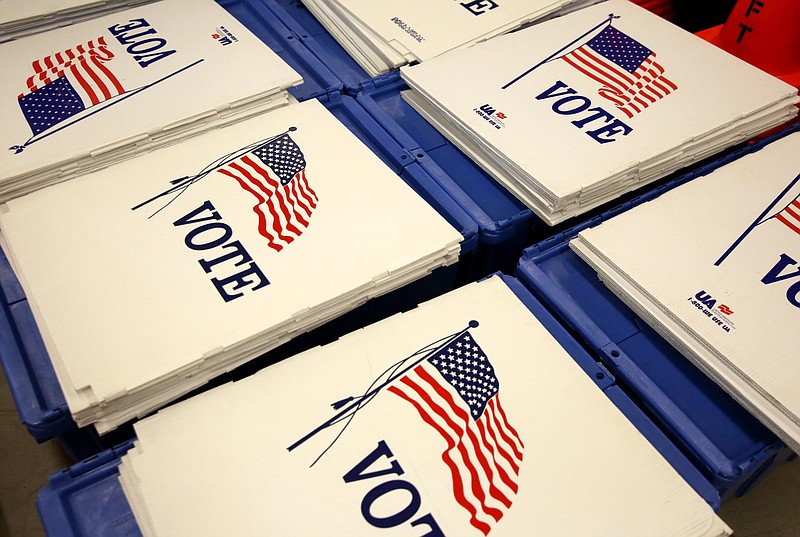For a decade, ex-felons in Tennessee seeking restoration of their right to vote have had that right held hostage by a state-imposed financial obligation.
But if justice prevails, passage of a bill pending in the legislature would allow ex-prisoners who have completed their felony imprisonment to regain their right to vote in time for this year's general election.
They have a potentially valuable ally: Prison Fellowship, a nonpartisan and nonprofit organization founded by Charles Colson after he served time in prison following a federal obstruction of justice conviction during the Watergate era.
The group has released a study, "An Overview of Voting Rights for Ex-felons," some of which applies directly to the Tennessee law that needlessly punishes ex-felons even after their release.
It merits the attention of the governor and legislators.
The law passed in 2010,TCA 40-29-202(b)(2), sets the procedure ex-felons must follow for restoration of their right to vote. But there's a nearly insurmountable problem. It requires that the court costs incurred in their prosecution are a part of their sentence, and those who have completed their incarceration must pay those court costs and be current in any child support payments they owe before they can even apply to regain their right to vote.
The law has proven to be brutally effective. The Marshall Project, a nonpartisan and nonprofit news organization that studies America's criminal justice system, said in a recent report that Tennessee has "one of the nation's most complicated voting restoration processes."
It included a statistic that says while the law has been used to restore voting rights to 11,500 ex-felons, more than 320,000 men and women are still waiting.
The argument for the payment requirements is flawed for two reasons.
First, the law defines the ex-felons' desire to vote as a privilege, not a right. And second, it requires them to purchase that right by paying not only the costs of their prosecution but also accrued child support.
The fact that many ex-felons find it difficult to get a job that pays enough to meet the law's financial demands creates a perfect Catch-22: "a paradoxical situation from which an individual cannot escape because of contradictory rules or limitations."
Change may be on the horizon.
State Rep. Michael Curcio, R-Dickson, chairman of the House Judiciary Committee, introduced legislation (HB 547/SB 589) in the last session that reportedly would repeal sub-sections (b)(2) from the 2010 law. It is now on hold pending the addition of "amendatory language" and votes by both houses. Passage could mean that ex-felons could file for restoration of voting rights right away.
The Prison Fellowship study correctly asserts not only that "the right to vote is a person's right of citizenship," but that "voter disenfranchisement has a shameful legacy of intentional discrimination against communities of color and people living in poverty."
A case study on the restoration of voting rights suggests legislators ignored the results of a 2006 law that linked nonpayment of child support to revoking formerly imprisoned persons' right to vote. In the 12 years after, there was an 82 percent increase in unpaid child support.
What has the legislature learned from this case study?
"[L]inking financial obligations to the [right to vote] does more to erode a person's sense of belonging in society than almost any other factor." And why? Because "they simply cannot climb out of the financial hole they are in while they are also not a full-fledged member of society."
The value of restoring ex-felons' voting rights helps ex-felons re-enter society successfully, mitigates recidivism and saves taxpayer dollars. And it added: "In fact, [voting] rights restoration efforts in other states are associated with an almost 13 percent decrease in recidivism. Such a decrease, it said, would prevent about 3,500 offenders from returning to prison, saving taxpayers potentially $96.5 million.
All of which suggests that a swift approval of by Tennessee legislators and the Lee administration would be a valuable contribution to society.
Michael Loftin is a former opinion page editor for The Chattanooga Times.

